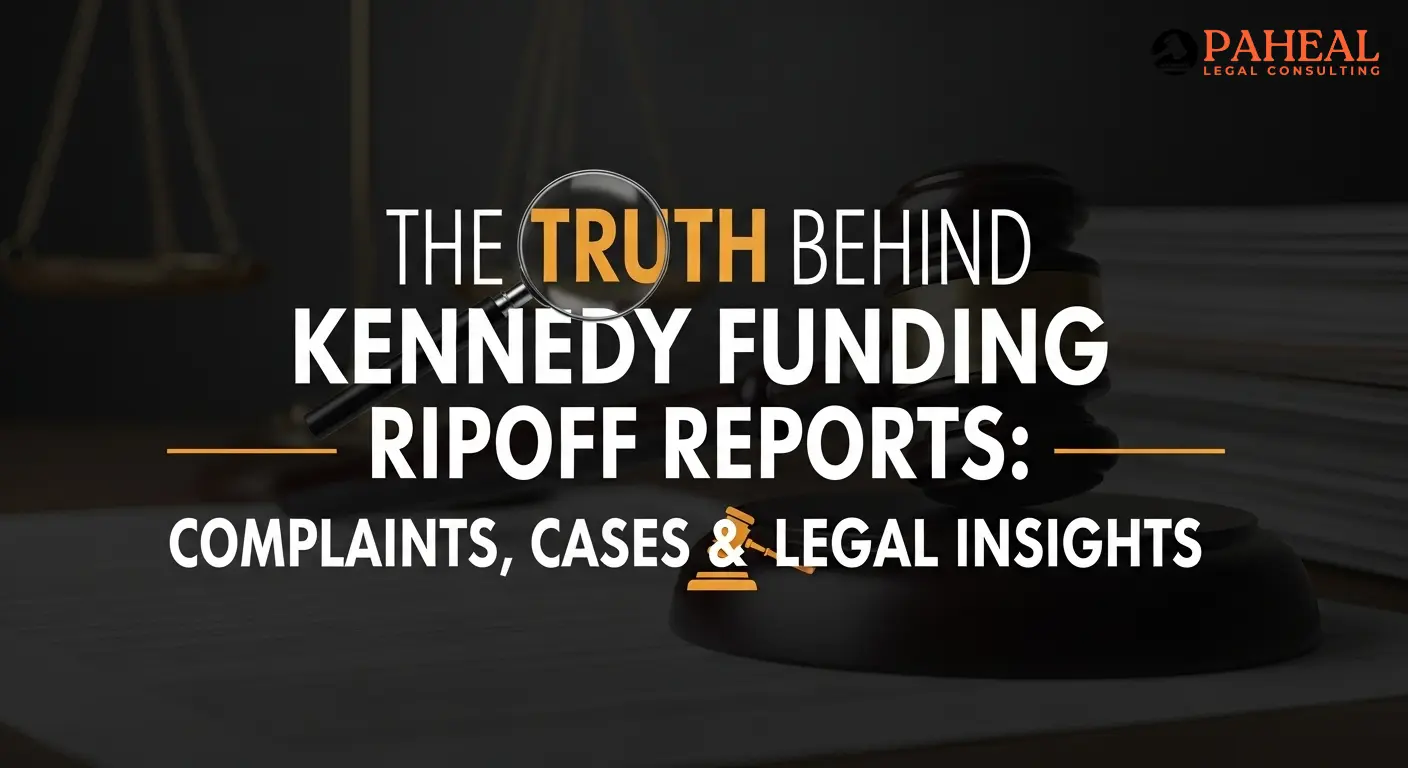If you have ever searched for “Kennedy Funding ripoff report,” you’re not alone. The lender has been the subject of a steady stream of online grievances, consumer complaints, and legal whispers so much so that their name often shows up alongside “scam,” “hidden fees,” or “misleading” in search results. But are these just isolated frustrations or signs of something deeper, We’ll dig into what’s real and what’s misrepresented. We’ll walk through who Kennedy Funding really is, review the major complaints, examine the known lawsuits and legal record, compare their situation to similar lenders, and offer practical insight for anyone considering borrowing from them.
Kennedy Funding is a legitimate, long standing private lender specializing in high-risk, fast real estate deals. While the company has received complaints regarding hidden fees and communication issues, some may arise from borrowers misunderstanding the nature of high-risk lending. Although legal cases exist, no major regulatory fraud findings have been made. Prospective borrowers should perform thorough due diligence, review documentation carefully, and consider alternatives if necessary.
Who Is Kennedy Funding and What Do They Offer
Before you can judge the complaints you’ll need to first understand the business model.
Company Overview
Kennedy Funding is a private, direct lender based in New Jersey (U.S.A.). According to their website they’ve closed in excess of $4 billion in loans. Kennedy Funding They specialize in what’s called “bridge” or “hard-money” loans for commercial real estate land acquisition, construction, development, refinancing deals in unconventional projects. They promote speed (closing in a few days) and flexibility in projects that traditional banks might decline.
What Makes Them Different from a Bank
- Traditional banks often require strong credit scores, large down payments, long underwriting timelines.
- Kennedy Funding and similar lenders operate on an asset backed basis the collateral (land, property) and the project’s potential make the deal viable.
- Because of higher risk, the interest rates, fees and conditions are more onerous. Remote Cost Seg’s review notes 9%-12% interest rates (versus 4%–6% typical for bank loans) and more cost components.
Why Complaints Arise Simply from the Business Model
This niche fast, flexible, high risk lending is fertile ground for misunderstandings and conflict. Borrowers often expect bank like terms but don’t get them; they may pay fees upfront; they may be denied after paying due diligence costs. We’ll see that many complaints stem from that tension.
What Are the Main Complaints and “Ripoff Report” Themes
Let’s turn to the heart of the matter. What are borrowers saying when they call Kennedy Funding a “ripoff”.
Hidden or High Upfront Fees
Multiple reviews say borrowers paid substantial due diligence or application fees sometimes thousands of dollars only to have their loan not close. For example:
“They do ask for the due-diligence fee with only preliminary information require for submission. Paying the fee obviously doesn’t guarantee approval.”
Judicial Ocean’s summary notes that many complaints involve fees paid, then delays or rejection.
Delays, Broken Promises or Changing Terms
Borrowers say Kennedy Funding promise fast closing but then: funding was delayed, conditions change, or the loan offer was retract.
“Some investors claim they were ‘approve’ but never receive actual funding.”
These scenarios create frustration, especially in real-estate deals where time is critical.
Poor Communication / Unresponsiveness
A recurring theme once the borrower has paid fees or entered underwriting, contact becomes sparse. Complaints include being pass around, unanswered calls, or getting conflicting messages.
Vague or Unclear Loan Terms
Borrowers allege that key terms fees, repayment conditions, exit strategies weren’t clearly spelled out upfront.
“Transparency is everything in lending Kennedy Funding’s contracts have been criticize for vague wording or complex terms.”
If you don’t fully understand the structure (exit strategy, balloon payments, refinance conditions) you’re expose.
Reputation of Being “Scam” or “Ripoff” Online
Because of the above issues, Kennedy Funding carries a reputation in some circles as a “ripoff,” though that does not necessarily mean legally a scam. Many blog-posts summaries the “Ripoff Report” narrative: people complaining online about lost fees or fail funding.
Putting It All in Perspective: Was Kennedy Funding a “Ripoff”
It Depends on Expectations
If you go in expecting a bank style loan (low fees, long term, easy approval), you’ll likely be disappointed. But if you understand you’re dealing with a hard-money lender higher cost, higher risk, fast turnaround then Kennedy Funding may function as design.
The Role of Communication & Contract Clarity
Much of the “ripoff” talk arises when one side (the borrower) feels blindsided. Often the root cause: unclear term-sheet, fees that weren’t emphasise, or expectations mis matched. When contracts are ambiguous (see the case above) you get disputes.
Compared With Peers
“They do ask for the due diligence fee paying the fee obviously doesn’t guarantee that they will approve the deal.”
So Kennedy Funding is part of a category of lenders where many of the systemic issues are industry-wide rather than unique. The difference is the scale of Kennedy Funding and thus higher visibility of complaints.
Final Thoughts
If you reach this point, you’re better inform about the “Kennedy Funding ripoff report” phenomenon than many blog posts give you. The truth is nuanced yes, some borrowers felt misled, but that doesn’t equate to automatic scam. Many experience borrowers use Kennedy Funding and got the financing they needed, even at a premium cost.

